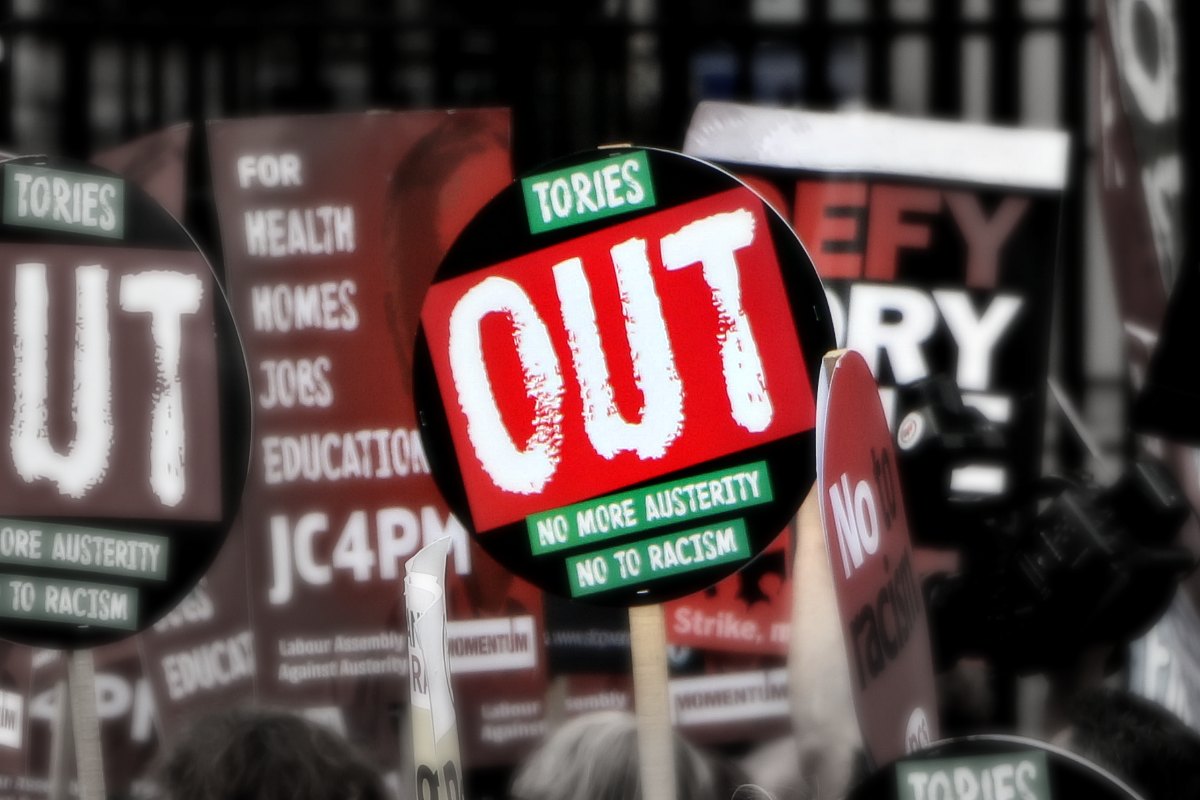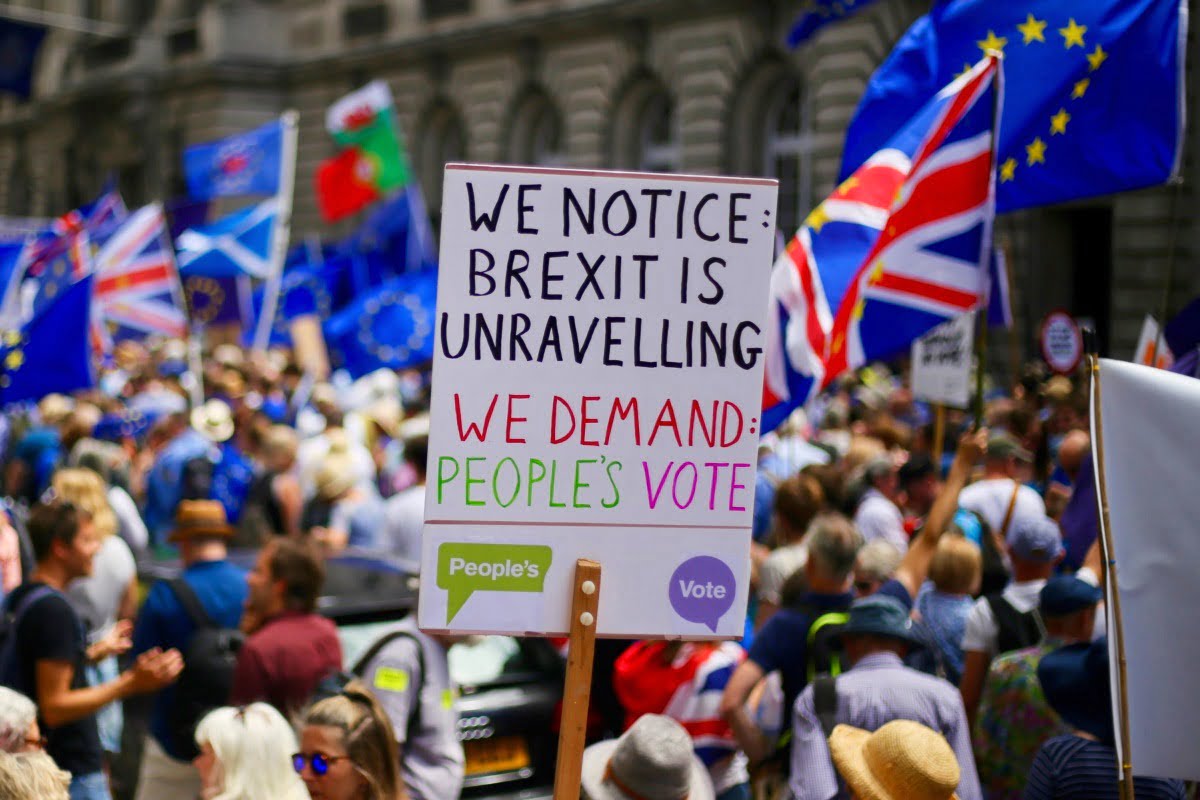Given the political paralysis in Parliament, the question of a ‘People’s Vote’ has become increasingly prominent. But rather than stabilising a convulsive political situation, a fresh referendum would only intensify the chaos.
Theresa May’s decision last year to postpone the vote on her Brexit deal has done little other than provide a brief respite from her insoluble dilemma. Her negotiated package remains hated by all sides. Rather than bringing people round to her proposal, the Christmas period has hardened the resolve of Brexiteers and Remainers alike.
Each player is now involved in a high-stakes game of chicken, waiting for the others to blink first in the run-up to the looming 29th March deadline. Ardent Brexiteers are holding out for a no-deal exit – the default option if no other alternative is agreed by then. Devoted Remainers are digging their heels in, hoping for second referendum.
Corbyn is still (correctly) calling for a general election. The Prime Minister, meanwhile, hopes that the sight of the rapidly approaching abyss will win over enough terrified converts to her deal.
Those pushing for a ‘People’s Vote’ believe that their hand has been strengthened by yesterday’s vote in Parliament, where an amendment to the government’s finance bill was passed that ties ministers’ hands if they pursue a no-deal Brexit.
Such a move, however, does not stop a train-crash departure from the EU from happening. The only thing that can prevent this is if an alternative is voted through Parliament. But each team has painted themselves into their own little corner, with nobody able to command a majority in the House of Commons.
As Stephen Bush of the New Statesmen notes: “No-one is incentivised to do anything to secure parliamentary support for their preferred resolution to the Brexit crisis because everyone’s interests appear to be served through the threat of the cliff-edge, even though that outcome is only actively desired by a minority of ultra-committed Brexiteers.”
Kicking the can
 The vote on May’s Brexit deal is now set for next week, on Tuesday 15th January. This will be preceded by (another) few days of debate in Parliament.
The vote on May’s Brexit deal is now set for next week, on Tuesday 15th January. This will be preceded by (another) few days of debate in Parliament.
If Theresa May is defeated and her beloved deal is voted down, the Prime Minister will be asked to return to Brussels and reopen renegotiations. But EU leaders have already made it clear that there will be no concessions.
The government will likely pull the emergency cord and seek an extension of the Article 50 time-limit. Currently, however, May does not want to indicate any intention to do this, as it would deprive her of her primary weapon at this stage: the threat of a no-deal Brexit.
Even if the option of extension was pursued, it would only (once again) kick the can further down the road. And it would rely on the unanimous support of the other 27 EU countries – permission that may not be granted if the UK government’s intention is simply to prevaricate some more.
At the same time, European leaders – as with British big business – are not keen to see a chaotic divorce with the UK either. This forces them to reluctantly cooperate with the Prime Minister. But this too has its limits.
Gamble
 If May’s deal is voted down next week, it is possible that a Norway-style deal might be proposed. But it is not certain that this would be accepted by Parliament either. It would rely on those currently committed to a second referendum to abandon their crusade. And, at the present time, these ladies and gentlemen believe that it is their star that shines most brightly.
If May’s deal is voted down next week, it is possible that a Norway-style deal might be proposed. But it is not certain that this would be accepted by Parliament either. It would rely on those currently committed to a second referendum to abandon their crusade. And, at the present time, these ladies and gentlemen believe that it is their star that shines most brightly.
Corbyn’s Labour might attempt to pass a vote of no confidence in the government. But this is also likely to fail. After all, it would require the backing of DUP or Tory MPs in order to pass – MPs who would not likely be served well by a new general election. It would be a case of turkeys voting for Christmas.
With all other avenues blocked, calls for a second referendum will grow louder. But this would not eliminate the deadlock in Parliament either. Instead, it would only transfer the stalemate to a new plane. After all, the outcome of a ‘People’s Vote’ would depend on the question posed in such a referendum. This would itself become a political battleground.
Whilst a new referendum would be preferable to a no-deal Brexit for the capitalists, it is still a very dangerous gamble for them to take. For this reason, big business has been very cautious about supporting the demand, as it could open up a Pandora’s Box.
If called, it is not guaranteed that Remain would win. The attempt to reverse Brexit could backfire disastrously, if voters opted for a no-deal option. This would be a nightmare scenario for the capitalists.
Even if Remain won, it would likely be with a small majority. Whatever the result, it would lead to extreme bitterness and polarisation throughout society.
General election now!
 Labour will be put in an impossible position in the event of a second referendum. If the party supported Remain, it would alienate millions of working class voters who wanted to leave. A layer could shift over to the Tories. They could only be won back on the basis of a bold socialist programme.
Labour will be put in an impossible position in the event of a second referendum. If the party supported Remain, it would alienate millions of working class voters who wanted to leave. A layer could shift over to the Tories. They could only be won back on the basis of a bold socialist programme.
Jeremy Corbyn realises this danger and has intimated that Labour would not oppose the 2016 result. But this would lead to an open split in the Labour Party over the issue, as it is the Blairites who are most fervently championing Remain, in the hope of staying in the Single Market.
One can imagine the howls of ‘betrayal’ from the Brexit camp in the event of a Remain victory. Barry Gardiner, Labour’s shadow international trade minister, warned that a second referendum would boost the far right and could lead to “civil disobedience”. All hell would break loose.
May would be humiliated and forced to go. The Tory Party would be split. Under these circumstances, a Brexiteer such as Boris Johnson could be elected leader, resting on the reactionary backlash.
A reversal of the 2016 result would further undermine faith in parliamentary democracy. UKIP, the Tory right, and the hysterical right-wing press would all launch a ferocious campaign against the ‘establishment’ and the betrayal of the 17.4 million people who previously voted Leave. There would be a rise of national chauvinism and xenophobia. The repercussions could be immense.
This could temporarily setback class consciousness, since the division in society would not be between left and right but between two camps of the ruling class.
At the same time, none of the problems facing the ruling class would be solved. Rather, tensions and contradictions would only be exacerbated. Such a scenario would make British politics even more convulsive and could lead to further parliamentary paralysis.
This is why we need a socialist Labour government, not a second referendum.






